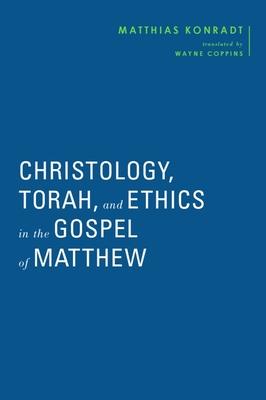Christology, Torah, and Ethics in the Gospel of Matthew, the tenth and final volume in the Baylor-Mohr Siebeck Studies in Early Christianity series, brings together seven of Matthias Konradt's most important essays on the Gospel of Matthew. Together they highlight key themes of this major early Christian text and demonstrate its formative role in shaping both the identity and theology of the growing Christian movement.
The first chapter on the context of Matthew is foundational. It presents the main points of controversy in recent scholarship on the relationship of the Matthean community to Judaism, identifies the interpretive problems that underlie the disagreements, and sketches out perspectives for subsequent scholarship. The next two chapters deal with central aspects of Matthean Christology: chapter 2 with the Davidic-messianic aspects of Matthean Christology and chapter 3 with the character of the Son of God concept in Matthew alongside the controversial question of the meaning of righteousness in Matthew. With chapters 4 and 5, Konradt works out his sophisticated understanding of Matthew's Torah hermeneutic, giving special attention to the interpretation of the antitheses in the Sermon on the Mount and to Matthew's reception and interpretation of the decalogue.
Finally, with the analysis of mercy in chapter 6 and the detailed interpretation of the invitation of Jesus in Matthew 11:28-30 in chapter 7, the last two chapters show that Matthean ethics are not exhausted in the interpretation of the Torah. Rather, in the way the Gospel of Matthew brings together Old Testament and early Jewish heritage with an orientation toward the ethical potential of the Christ event, it proves to be one of the main testimonies of New Testament ethics.
